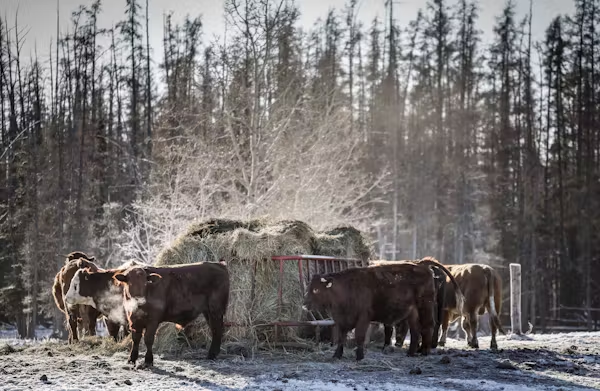
Agroecology differs from standard agricultural practices in that it seeks to work with nature to build systems that mutually benefit humans and ecological systems. THE CANADIAN PRESS/Jeff McIntosh
Amidst rising food costs and environmental challenges, Canada's food system faces significant issues from production to consumption. The annual Canada Food Price Report for 2024 predicts a further increase of 2.5 to 4.5 percent in grocery prices, exacerbating the financial strain on consumers. These price hikes are attributed to various factors, including adverse weather conditions affecting agricultural productivity and increased input costs for farmers.
One of the primary concerns contributing to the higher prices is the impact of severe weather events on farming operations. Floods, droughts, and extreme temperatures have become more frequent, posing significant challenges for farmers across the country. In the Prairie provinces, where large-scale monoculture farming dominates, these challenges are particularly pronounced. Industrial farming practices, heavily reliant on emission-intensive inputs like fertilizers and pesticides, are ill-equipped to adapt to changing climate conditions.
Recognizing the need for a shift towards more sustainable agricultural practices, the National Farmers Union of Canada has advocated for agroecology as a viable alternative to industrial farming. Agroecology, rooted in the Nyéléni Declaration of 2015, emphasizes ecological farming methods that promote biodiversity and resource efficiency. Unlike conventional farming practices, which rely heavily on chemical inputs and monoculture, agroecology prioritizes the use of diverse crops and animals to enhance soil health and ecosystem resilience.
While agroecology is often associated with small-scale, diversified farming, some farmers in the Prairie provinces are embracing its principles despite facing significant challenges. In a recent study, farmers across the Prairies expressed their commitment to implementing agroecological practices to promote soil health and conserve water. However, they also highlighted the obstacles they face, including burnout and isolation due to the dominance of industrial farming in the region.
Scaling up agroecology in the Prairies will require supportive policies that lower barriers to entry for new farmers and incentivize ecological farming practices. Additionally, building a strong community among ecological farmers is crucial to address the isolation and burnout experienced by many practitioners. However, this transition must also reckon with Canada's history of settler colonialism and prioritize Indigenous land rights and sovereignty.
In conclusion, promoting agroecology in Canada's food system offers a pathway to address both environmental and social challenges. By embracing ecological farming practices and fostering community support, Canada can move towards a more sustainable and just food system that respects both people and the land.















